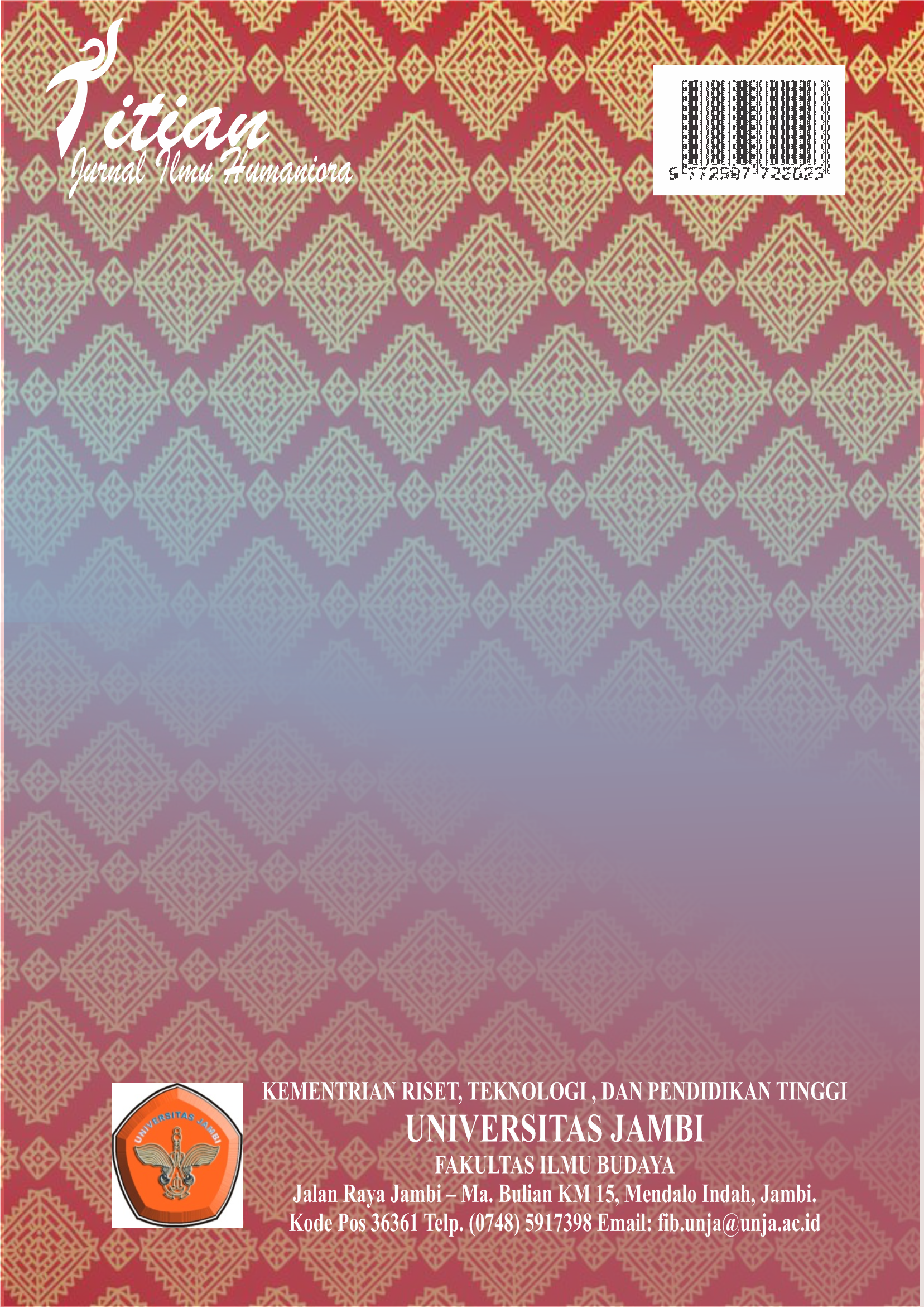Kearifan Lokal pada Perwujudan Tathagata di Candi Borobudur
DOI:
https://doi.org/10.22437/titian.v5i1.12185Keywords:
Local genious, Statue, Tathagata, RupadhatuAbstract
This study describes about the form of local genius from tathagata Statue in Borobudur temple. Tathagata is a term to call someone who reach the truth of life. This Tathagata becomes the Buddha image which has certain characteristic (like hand gesture or mudra, and sit gesture). This study using 20 Tathagata in Rupadhatu terrace of Borobudur. Five characteristic of local genious which told by Ayatrohaedi (1986) become reference for showing the local genious that exist in Tathagata statue in Borobudur temple. The purpose of this article is giving new opinion that since Hindu-Buddha period, the old Javanesche artist (silpin) had been able to integrate foreign culture within local culture in the art and placement form of tathagata image. The research found that Tathagata have unique charateristic in art style and the placement which are the form of local genious from the Javanesche artist.
Downloads
References
Asmito. (1988). Sejarah Kebudayaan Indonesia. Semarang: IKIP.
Ayatrohaedi (peny.). (1986). Kepribadian Budaya Bangsa (Local Genius). Jakarta: Pustaka Jaya.
Balai Konservasi Borobudur. (2013). Kearsitekturan Candi Borobudur (Architecture of Borobudur Temple). Yogyakarta: Balai Konservasi Borobudur.
Battacharyya, Beynotosh. (1958). The Indian Buddhist Iconography. Calcutta: Firma K. L. Munkhopadhyay.
Coomaraswamy, Ananda K. (1999). Hinduism and Buddhism. New Delhi: Munshiram Manorhalal.
-------------------------------------. (1998). Elements of Buddhist Iconography. New Delhi: Munshiram Manorhalal.
Indrajaja, Agustijanto dan Endang Sri Hartanti. (2014). Awal Pengaruh Hindu Buddha di Nusantara. Jakarta: Puslit Arkenas.
Koentjaraningrat. (2015). Pengantar Ilmu Antropologi. Jakarta: Rineka Cipta.
Magetsari, Nurhadi. (1997). Candi Borobudur: Agama dan Filsafatnya. Depok: FSUI.
Maulana, Ratnaesih. (1996). Perkembangan Gaya Seni Arca di Indonesia dalam Laporan Penelitian FIB UI. Depok: FIB UI.
Mentari, Gaya. (2016). Tesis Arca-arca Tathagata di Rupadhatu Candi Borobudur: Tinjauan Gaya Seni. Depok: Universitas Indonesia.
Munandar, Agus Aris. (2012). Proxemic Relief Candi-candi Abad Ke-8-10. Jakarta: Wedatama Widyasastra.
Permana, Eka Cecep. (2010). Kearifan Lokal Masyarakat Baduy. Jakarta: Wedatama Widyasastra.
Soemardjo, Jacob. (2009). Asal-usul Seni Rupa Modern Indonesia. Bandung: Kelir.
Sedyawati, Edi. (1980). Pemerincian Unsur dalam Analisa Seni Arca dalam Penelitian Ilmiah Arkeologi. Jakarta: Pusat Penelitian Arkeologi Nasional.
------------------. (1985). Pengarcaan Ganesha Masa Kadiri dan Singhasari: Sebuah Tinjauan Sejarah Kesenian. Depok: FSUI.
Utomo, Bambang Budi. (2016). Pengaruh Kebudayaan India dalam Bentuk Arca di Sumatra. Jakarta: Yayasan Obor Indonesia.
------------------------------. (2013). Arca-arca Berlanggam Syailendra di Tanah Jawa. Jakarta: Pusat Penelitian Arkeologi Nasional.
Zimmerman, Michael. (2002). A Buddha Within: The Tathagatagarbhasutra, The Earliest Exposition of The Buddha-Nature Teaching in India. Tokyo: Soka University.
Downloads
Published
How to Cite
Issue
Section
License
Copyright (c) 2021 Gaya Mentari

This work is licensed under a Creative Commons Attribution-ShareAlike 4.0 International License.































